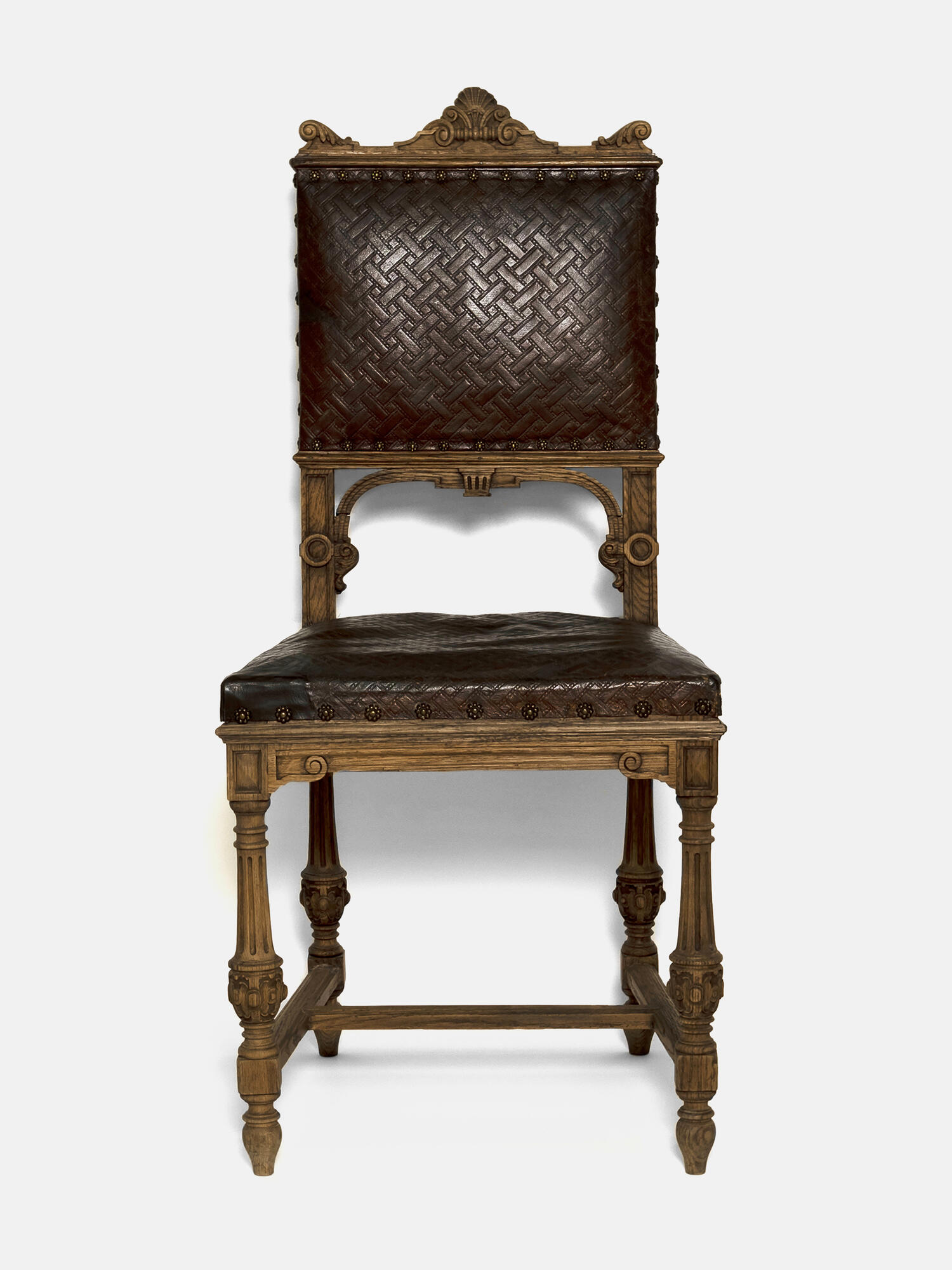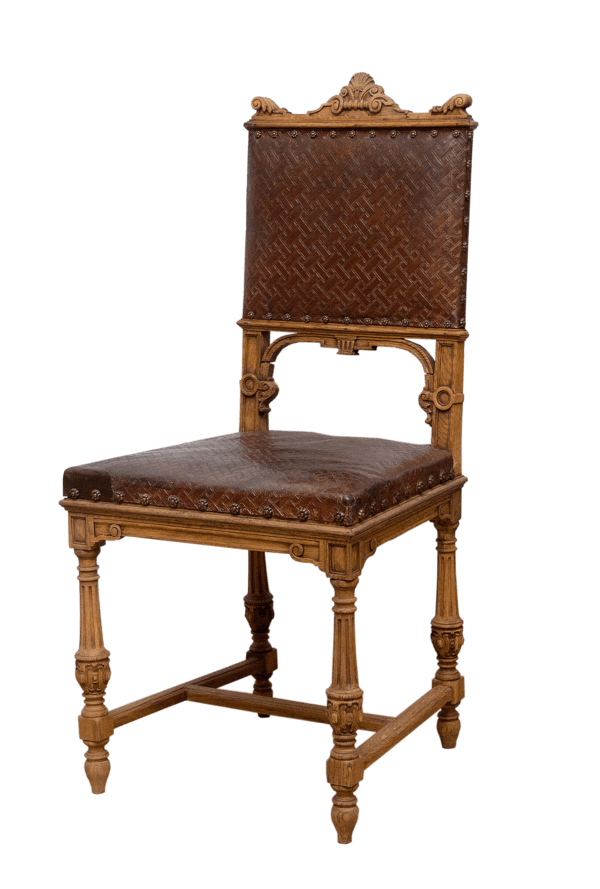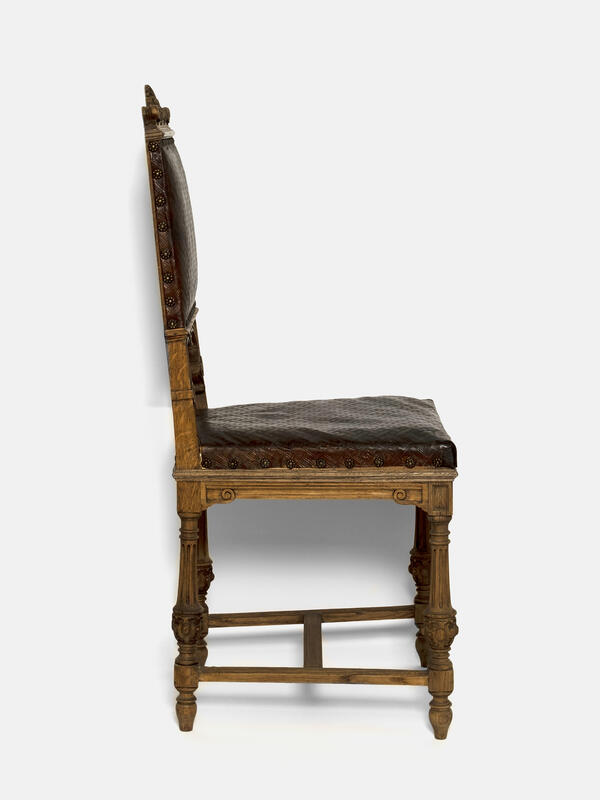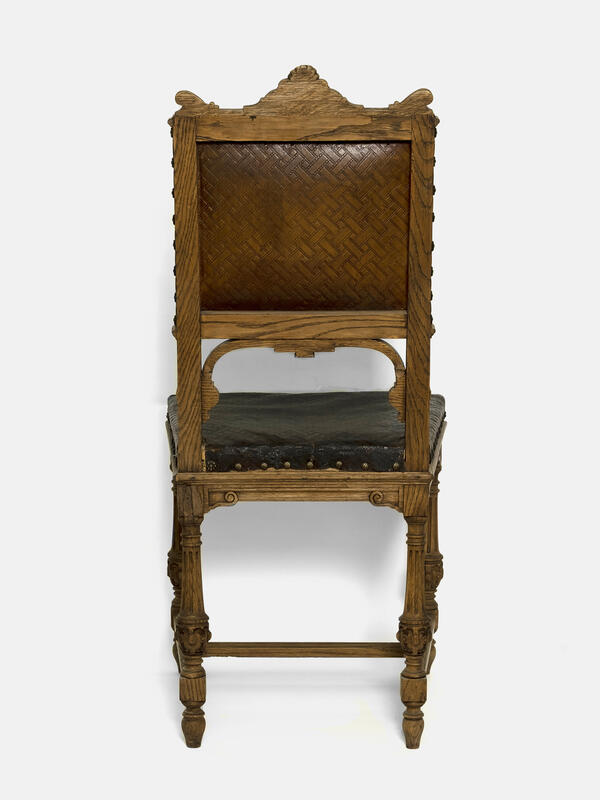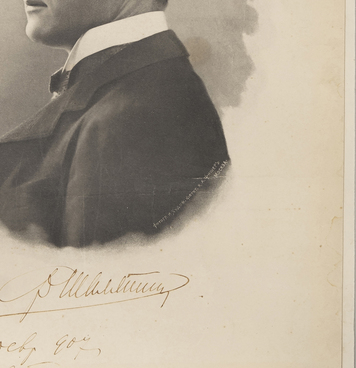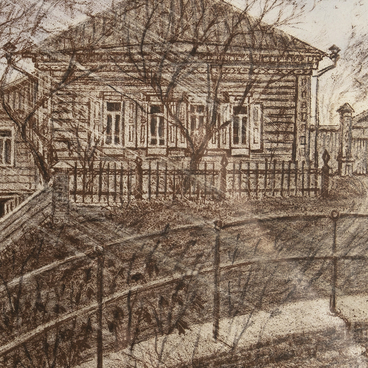This natural light oak chair belongs to a furniture set from Feodor Chaliapin’s house in Moscow. The performer bought the mansion on Novinsky Boulevard in May 1910 and lived there with his family for 12 years before going abroad for good. He completely rebuilt the wooden one-story mansion, installed a gas line, a telephone and plumbing, and set up a boiler room and bathrooms. The mansion’s roof enjoyed new chimneys and decorative moldings, and ornate vases were placed at the sides of the cast iron gate. The entire reconstruction of the house was supervised by the Italian ballerina and the singer’s wife Iole Tarnaghi, who had great taste.
Feodor Chaliapin’s home in Moscow was lavishly decorated and hospitable, and there was always music playing there. The man of the house and his guests played the grand piano and wound up a fashionable musical device called Victrola. The walls of the house were adorned with paintings by Konstantin Korovin — a close friend of the family. In the dining room, there was a sideboard with customized services and an extendable wooden table for 24 people. The latter was surrounded by oak chairs with leather upholstery, where Feodor Chaliapin’s guests — Sergei Rachmaninoff, Ivan Bunin, Maxim Gorky, Valentin Serov and Viktor Vasnetsov — were usually seated.
During the First World War, Feodor Chaliapin financed the conversion of his house into a hospital for the soldiers. After the Russian Revolution in 1917, the house was nationalized, and according to a new densification policy, it was divided into communal apartments to accommodate 16 families. Chaliapin, his wife and their five children had to move into small rooms on the second floor, which he called “a pigeon house”. During that period, many of his precious personal belongings were stolen.
The house went on having communal apartments for 60 years, until 1978 when its residents were resettled due to disrepair. The house came close to being demolished during preparations for the 1980 Olympics in Moscow, but thanks to Chaliapin’s eldest daughter Irina and the support of a group of performers, a memorial museum was opened in Chaliapin’s estate and became a branch of the Russian National Museum of Music.
The chairs from Feodor Chaliapin’s home in Moscow were donated to the museum by his daughter specifically for the exhibition “Gorky and Chaliapin”, dedicated to the friendship between the writer and the singer. The exhibition was timed to coincide with the 100th anniversary of Maxim Gorky’s birth and the 95th anniversary of Feodor Chaliapin’s birth.